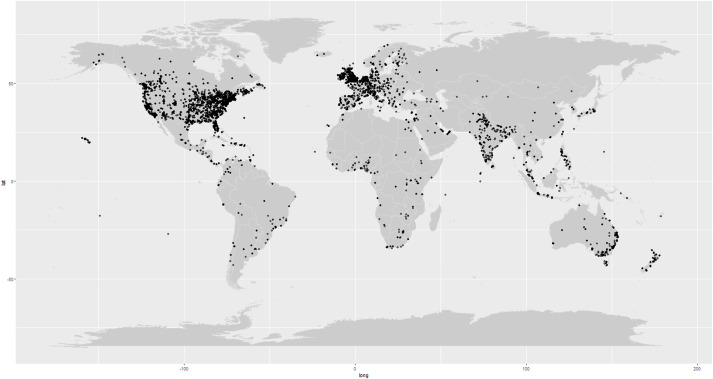Elsevier,
Advanced Applications of Biobased Materials: Food, Biomedical, and Environmental Applications, Volume , 1 January 2023
This chapter aligns with Goal 6: Clean water and sanitation by discussing existing knowledge on different categories of biobased materials as biosorbents for wastewater treatment and giving future perspectives for the development of advanced biobased materials capable of overcoming drawbacks from the existing ones.
This chapter aligns with Goal 6: Clean water and sanitation by discussing different strateties for the treatment of wastewater using a wide range of nanomaterials.
This content aligns with Goal 3: Good Health and Wellbeing by providing a current understanding of the cellular and molecular basis of mammalian antifungal immunity, which shows promise for guiding immunotherapy and vaccination strategies for at-risk patients, including those with HIV/AIDS.
The authors of this study adopted a novel methodology, involving the use of unsupervised machine learning to analyse a large volume of free-text data from social media tweets with content related to healthy ageing, and further categorised the arising broad themes through inductive and iterative thematic analysis.
This study investigates how sustainable transport infrastructure affects access to healthcare.
This study aims to increase the understanding of why some people may report a high degree of worry about climate change, while others (living in the same country) do not.
Climate change not only has effects on people's mental health and emotions, but emotions and associated behavioral patterns may also affect the further course of climate change. Most importantly, climate change distress may serve as a motivating force for pro-environmental behavior. This study examined the effect of climate change distress on pro-environmental behavior and investigated the association between age and gender with climate change distress and climate change impairment.
Elsevier,
Cardio-Hepatology: Connections Between Hepatic and Cardiovascular Disease, 2023, Pages 123-132
This content aligns with Goal 3: Good Health. Passive hepatic congestion is an often overlooked consequence of right heart failure.
This content aligns with Goal 3: Good Health, this chapter aims at elucidating the main characteristics of AIH, PBC, and PSC, with particular interest for the clinical manifestations, pathogenesis, autoantibodies, and therapeutic options.
Elsevier,
Viral, Parasitic, Bacterial, and Fungal Infections: Antimicrobial, Host Defense, and Therapeutic Strategies, 2023, Pages 757-770
This content aligns with Goal 3: Good Health. As per World Health Organization (WHO) recommendations, it is required to implement the evaluation studies of ethnomedicines for HIV/AIDS, malaria, tuberculosis, and other infectious treatments, to find effective and economical therapeutic agents.

